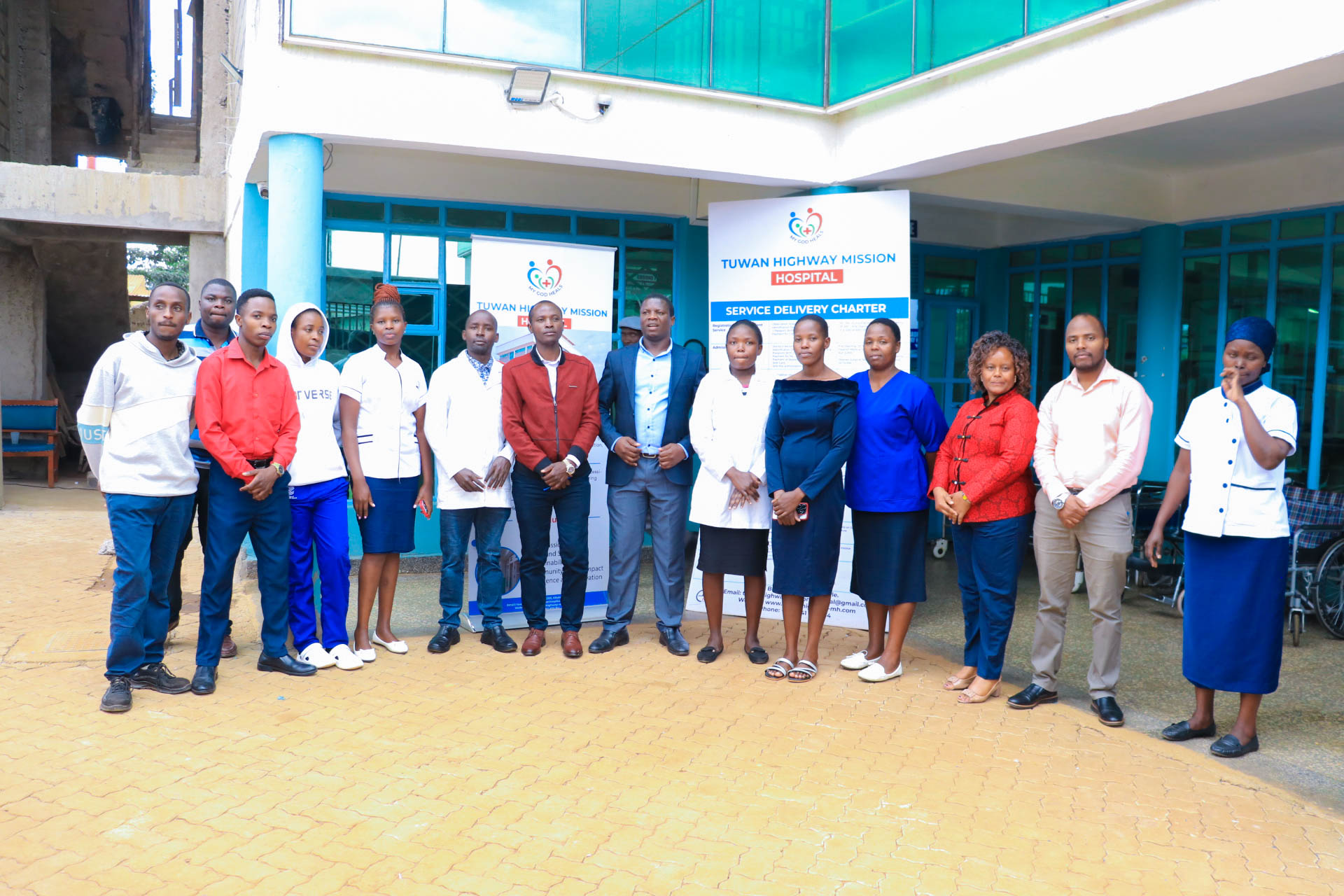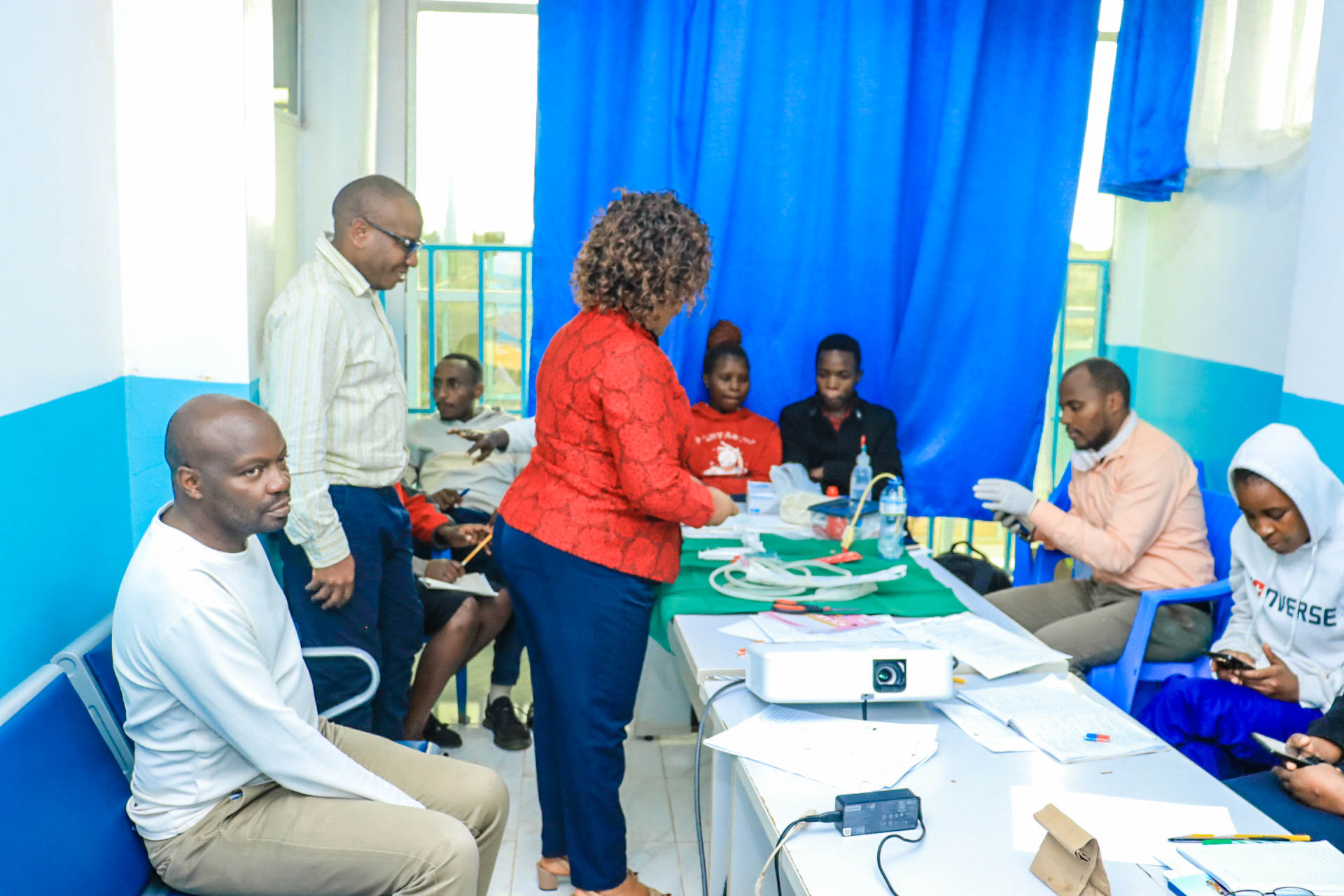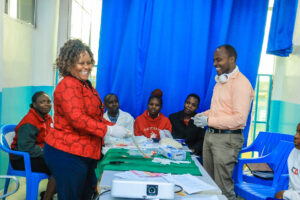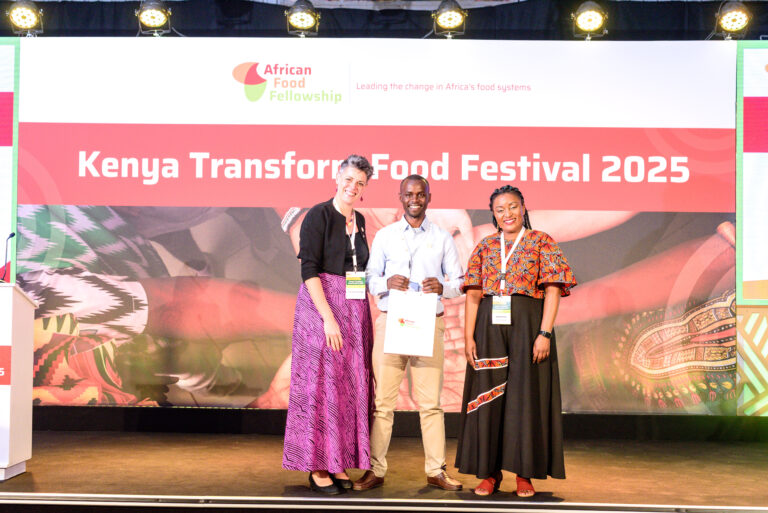Maternal death is not only a struggle in Kenya, but a challenge of greater concern threatening the health sector in third-world countries, often attributed to the slow adoption of medical technologies and cultural restrictions.
According to the World Health Organisation (WHO) statistics of 2023, global Maternal Deaths are approximately 197 deaths in every 100,000 births, with Sub-Saharan Africa accounting for 70% of the Deaths.
Kenya maternal death report
The Ministry of Health in Kenya reports 355 maternal-related Deaths in every 100,000 births, with an annual death of 6,0000.
Worrying statistics, which Dr Robert Serem, head of Reproductive, Maternal, Newborn Child and Adolescent Health in the Ministry, said remain a challenge in the sector.
According to him, efforts to combat the deaths require a higher-end level advocacy to not only service providers but society at large.
In many instances as by the Ministry of Health, maternal death include delays in seeking clinical care,expectant mothers relying on unskilled midwives, excessive bleeding and poor infrastructure delaying referrals resulting to deaths. resulting to deaths.
In efforts to address the menace, and help Kenya achieve less than 70 Maternal deaths in Sustainable Development Goals (SDG) by 2030, a new partnership between the Gates Foundation and the Christian Health Association of Kenya (CHAK) is training healthcare providers with new advanced technologies and drugs to reduce maternal-related deaths.

Speaking during a three-day training at Tuwan Highway Mission Hospital in Trans Nzoia County, Rhoda Njeru, Technical Advisor from CHAK, said the noble partnership aims to train doctors across the country, with an emphasis on rural counties where home deliveries are still prevalent.
Njeru is concerned that unreported cases of mother and child birth, undocumented, happening at home, could be higher than cases recorded by hospitals in the country. With the success of the advocacy dependent on both the society and healthcare providers, she emphasized the need for expectant mothers to deliver in hospitals.
“We are losing many mothers at home, as there are no first aid services offered in the hospitals at home to save lives. Such cases arrive in the hospitals when little can be done to save either of the two lives,” she explained.
What did the training offer?
During the three-day on-the-job training, doctors were trained in obstetric emergencies, newborn care, and comprehensive Newborn training, aimed at strengthening the service delivery of front-liners by empowering them with crucial life-saving skills and knowledge.
“CHAK has so far trained over 200 health providers, both off-job and on-job training and mentorship for the implementation to save more lives,” she stated.
While training doctors to save lives, the hospital received a donation from the partnership, including a partograph machine that helps to monitor labour pains while indicating any abnormalities during the process that could easily help doctors make a life-saving decision.
According to Njeru, the tool helps the monitoring doctor tell whether the mother will need help to increase labour pains for a normal delivery or through the Cesarean Section. Tuwan Highway Mission Hospital became the first facility in the county to receive the latest advanced medicine, carbetocin injection, which helps strengthen the uterine wall after birth to prevent further bleeding.
The Ministry of Health had earlier bought 360,000 doses of the new drug to be distributed in the country across all facilities.
The Hospital’s CEO, Dr Calisters Wekesa, lauded the move, terming it timely and thoughtful, owing to the location of the facility in Tuwan Ward, a home to the largest slum area in Kitale town, where home deliveries are still rampant.

“This is a timely course and training on the new medicine that will help prevent mothers from bleeding during childbirth, and also reduce the worrying statistics in the country. We will take it as our burden as a staff to educate expectant mothers in the area on the importance of the clinic visits, regular checkups and how to take care of themselves and the baby to avoid deaths,” he said.
Njeru further emphasised the need for expectant mothers to adhere to the 2016 WHO declaration, of at least eight clinical visits and regular contact with a doctor before delivery.
Simon Mwangi, a clinician and a member of CHAK, further elaborated on advanced technologies in the medicine field adopted by developed countries and slowly being implemented in countries that have shown success in reducing Maternal Deaths.
How maternal technologies can save lives
He called on healthcare providers to embrace technology, as it is becoming indispensable in the field, from advanced tablets to machines during birth.
Explaining the limited Continuous Positive Airway Pressure (CPAP) machine in the Newborn Unit (NBU), used to help children born before due dates and those who may develop complications after birth, leading to difficulty in breathing helped by CPAP, as well as Ellavi, which is used to prevent postpartum hemorrhage.
Echoing the calls by Wekesa and Njeru, Mwangi emphasised the need for expectant mothers to adhere to clinical visits, as earlier detection of signs that could lead to bleeding during childbirth can be detected and prevented.
Mwangi added that during prenatal visits, the mother gets a supply of antibiotics and anti-natal corticosteroid administered to the mother, which helps the child’s lungs develop and mature if given earlier.
Unlike before, where doctors casually detected whether it was excessive bleeding, a new tool calibrated drip helps to accurately detect the amount of blood lost and alert the doctors to the situation, without waiting for blood levels to reach 500pph.
“Doctors should embrace technology. Earlier, it was difficult for crucial medicines like oxytocin to be stored in facilities due to unreliable supply of electricity. With technology, hospitals can now store these crucial medicines in their facilities at temperatures below 30 degrees, which has ensured availability,” he explained.
However, with a one-sided effort, the implementation will be futile according to Njeru. She called on Community Health Promoters (CHPs) to encourage expectant mothers to attend antenatal clinics early, and help advocate for delivering in hospitals by bringing them to the hospital.
For every mother and family, the greatest joy is bringing home a healthy baby after the long journey of pregnancy. Inspired by this vision, champions like Mwangi, Njeru, and Wekesa—alongside countless partners and stakeholders in the health sector—are united in the fight to end preventable maternal and newborn deaths.
With strong advocacy, purposeful leadership, and collective action, they firmly believe that Kenya can and will achieve its goal of ensuring safe delivery for all mothers.



